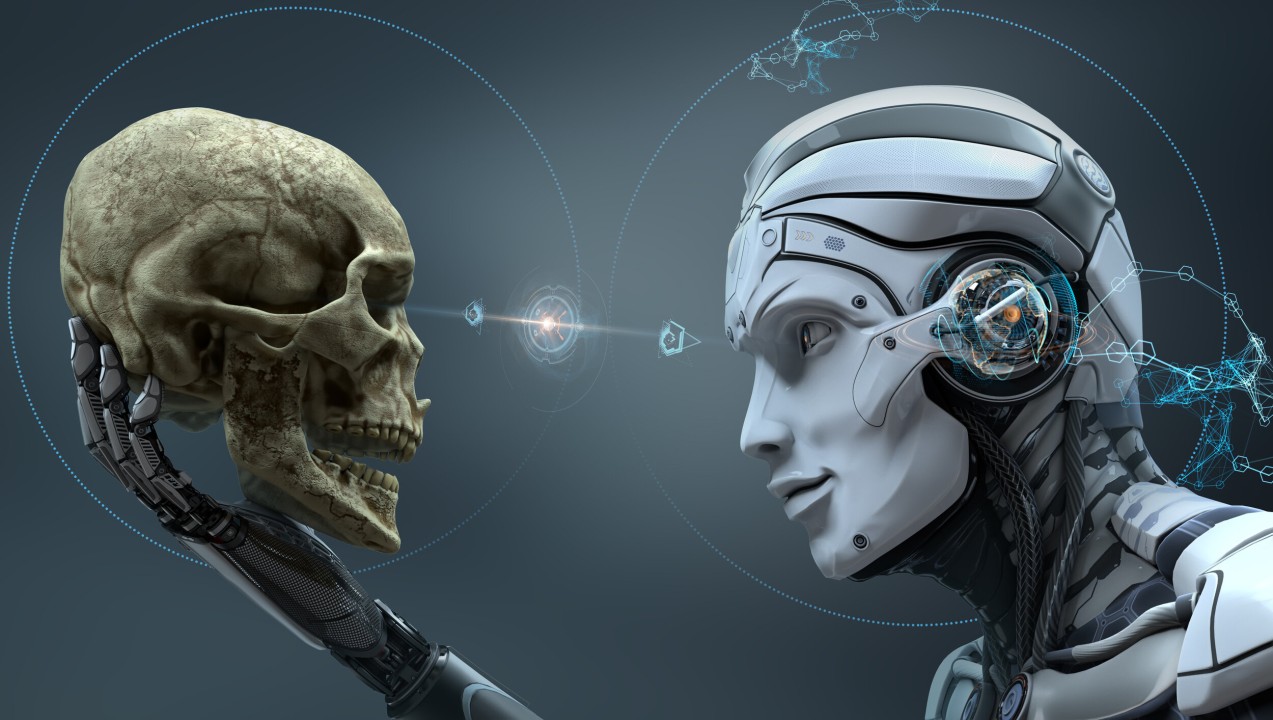The Journey to learn Artificial Intelligence (AI) in 2024 is not just a personal quest but a pivotal step into a future where AI is reshaping industries and businesses. In a recent survey by Forbes Advisor, a staggering 97% of business owners anticipate positive transformations through tools like ChatGPT, Midjourney, and Bard. The influence of AI is no longer confined to specialized niches, it’s permeating mainstream operations. So, In This Blog Well Delve into How to Learn AI as a Beginner in 2024?
Learning AI
As we stand at the crossroads of history, the significance of understanding and mastering AI cannot be overstated. Whether you’re a budding data scientist, a machine learning enthusiast, or an AI researcher, this comprehensive guide is tailored to illuminate your path. In the pages that follow, we unravel the intricacies of learning AI from scratch, drawing insights from industry experts. Beyond outlining the essential skills and tools, we delve into the current AI landscape, exploring how businesses can harness its potential for transformative success. Join us on this journey as we navigate the ever-evolving realm of AI in 2024.
What is Artificial Intelligence?
The definition of Artificial Intelligence (AI) can vary based on who you ask. For someone less familiar with technology, it might conjure images of robots. On the other hand, an AI researcher would describe it as a set of algorithms capable of producing results without explicit instructions. Both perspectives are accurate. In simple terms, Artificial Intelligence is:
- An Intelligent Creation:
- Crafted by humans.
- Can perform tasks intelligently without explicit instructions.
- Capable of thinking and acting rationally and humanely.
At its core, AI is a branch of computer science striving to replicate or create human intelligence in machines. The intelligence of machines is often powered by machine learning and deep learning algorithms. As AI evolves, functions that were once considered part of AI may now be seen as regular computer processes. For example, a calculator, once deemed AI, is now considered a simple function. Let’s explore the different levels of AI and understand why it’s crucial.

Why is Artificial Intelligence Important?
The primary goal of AI is to enhance human capabilities and enable us to make advanced decisions with far-reaching consequences. From a philosophical perspective, AI has the potential to free humans from laborious tasks, allowing for more meaningful lives. It also has the power to manage the intricate web of interconnected entities, promoting benefits for all of humanity.
Currently, AI is integrated into various tools and techniques developed over centuries to simplify human efforts and improve decision-making. Despite being a work in progress, AI is already helping companies enhance process efficiencies, automate tasks, and make data-driven predictions. Its significance lies in creating new opportunities, boosting productivity, and positively impacting various aspects of our lives.
History of Artificial Intelligence
The concept of intelligent beings has ancient roots, from myths about robots in ancient Greece to automatons built by Chinese and Egyptian engineers. Modern AI traces back to the mid-20th century, with discussions about creating an artificial brain. The term “Artificial Intelligence” was coined in 1956 by John McCarthy at Dartmouth College.
Despite challenges and periods of limited funding known as “AI Winters,” AI persisted. In 1997, IBM’s Deep Blue defeated world chess champion Garry Kasparov, marking a significant milestone. Over the last 15 years, major corporations like Amazon and Google have leveraged AI for commercial advantage, embedding it in online services and influencing the stock market.
Levels of Artificial Intelligence
AI can be categorized into three main levels:
-
Artificial Narrow Intelligence (ANI):
- Goal-oriented and designed for specific tasks.
- Functions under limitations, often referred to as weak AI.
- Examples include Siri, self-driving cars, and email spam filters.
-
Artificial General Intelligence (AGI):
- A concept where machines mimic human intelligence and apply it to solve problems.
- Not yet achieved; significant research is needed.
- Properties include recognition, recall, hypothesis testing, imagination, analogy, and implication.
-
Artificial Super-intelligence (ASI):
- A hypothetical concept surpassing human capabilities.
- Currently non-existent; often depicted in science fiction.
- Consequences and impact remain unknown.
Understanding the difference between weak AI and strong AI is essential:
- Weak AI: Limited application with a specific scope, good at specific tasks (e.g., Siri).
- Strong AI: Wider application with human-level intelligence (e.g., Advanced Robotics).
Why Should You Learn AI right now?
Artificial Intelligence (AI) isn’t just a buzzword, it’s a ground-breaking technology reshaping the way we live, work, and connect with the world. The escalating volume of data and the imperative to decipher it have led to an unprecedented demand for AI skills. The present moment is unparalleled for diving into the realm of AI, and here’s why:
1. AI is a Thriving Field
AI isn’t a distant future; it’s already here. The surge in AI-related jobs has been remarkable in recent years. According to the World Economic Forum’s Future of Jobs report, roles such as AI and machine learning specialists are projected to be among the fastest-growing over the next five years. As industries increasingly integrate AI to optimize operations and enhance decision-making, the demand for AI specialists is set to soar.
This trend is reinforced by the anticipated growth in the AI market size between 2021 and 2030, underscoring the expanding opportunities in the field.
2. Lucrative Job Opportunities
The escalating demand for AI skills comes with attractive financial rewards. As of November 2023, Glassdoor reports that the average salary for an AI engineer in the United States is $153,719 annually, with the potential for additional bonuses and profit-sharing. Similarly, machine learning engineers and data scientists command substantial salaries, averaging $151,158 and $178,515 per year, respectively. This financial compensation mirrors the market’s recognition of the value and impact of AI skills.
Moreover, we’ve witnessed a notable increase in these averages from May 2023 to November 2023, indicating the dynamic and lucrative nature of the AI job market.
3. Intellectual Challenge
AI isn’t just about the financial rewards and job demand; it’s a captivating field that promises intellectual stimulation. Involving the creation of algorithms to tackle intricate problems, designing models emulating human intelligence, and creatively applying these technologies to real-world scenarios, AI presents exciting challenges.
AI professionals engage in continuous learning, adaptation, and innovation. The field’s constant evolution ensures there’s always something new to discover, a problem to solve, or a system to enhance. This dynamic nature makes AI an exhilarating domain for those who relish challenges and thrive on perpetual learning.
How Long Does it Take to Learn AI?
The timeframe to Learn AI hinges on the learning path chosen, whether self-taught or through formal education like a university program.
In a self-taught approach to Learn AI, the duration varies based on prior knowledge, dedication, and available learning resources. Gaining a robust understanding of AI concepts, programming languages like Python, mathematics, and various machine learning algorithms through self-study can take several months to a year or more. Self-paced online courses, tutorials, and hands-on projects can expedite this process.
Conversely, pursuing a university route typically involves formal education in computer science, data science, or related fields. A bachelor’s degree in these disciplines typically spans three to four years, providing comprehensive training in AI and related subjects.
Regardless of the chosen path, ongoing learning, practical application, and staying abreast of advancements are paramount for a successful career in AI.

Artificial Intelligence Applications
Artificial Intelligence (AI) has seamlessly integrated into numerous industries, influencing various facets of our lives. Its applications extend from gaming to healthcare, and its presence is pervasive, shaping everyday experiences. Surprisingly, many familiar tools, such as Google Maps and facial recognition features on iPhones, rely on AI technology. In our daily lives, AI operates more ubiquitously than we might realize. For those eager to delve deeper into AI, Great Learning offers the PGP Artificial Intelligence and Machine Learning Course. Let’s explore some prominent applications of Artificial Intelligence.
Noteworthy AI Applications in 2024
- Google’s AI-powered Predictions (Google Maps):
- Enhanced traffic predictions through historical and live data, refined by AI and machine learning algorithms.
- Ride-sharing Applications (Uber, Lyft):
- AI algorithms optimize route planning, pricing, and overall user experience.
- AI Autopilot in Commercial Flights:
- Increasingly utilized for automated navigation and decision-making in commercial aviation.
- Spam Filters on Emails:
- AI-driven filters enhance email security by identifying and blocking spam content.
- Plagiarism Checkers and Tools:
- AI algorithms scan and compare content to detect instances of plagiarism.
- Facial Recognition:
- Employed in security systems, unlocking devices, and identity verification.
- Search Recommendations:
- AI refines search results based on user behaviour and preferences.
- Voice-to-text Features:
- Utilized in transcription services, virtual assistants, and hands-free communication.
- Smart Personal Assistants (Siri, Alexa):
- AI-driven agents perform tasks like messaging, web searches, voice notes, and chatbot interactions.
- Fraud Protection and Prevention:
- AI algorithms identify and mitigate fraudulent activities in financial transactions and online platforms

How to Learn AI as a Beginner in 2024?
Leaning Artificial Intelligence (AI) involves a series of steps, each building your expertise and understanding of this complex field. Here’s a structured approach to getting started:
Step 1: Master the Fundamentals
Mastering and Learning AI starts with mastering a set of core skills. While it might seem challenging to acquire all these skills, a focused and structured approach can yield significant results.
- Programming Skills: Proficiency in programming languages such as Python, Java, R, and C++ is crucial. Courses, especially those included in an M.Tech in AI program, can provide a solid foundation in programming, familiarizing you with essential algorithms and the basics of AI and ML model creation.
- Machine Learning Algorithms: A thorough understanding of various algorithms is fundamental to designing AI and ML models, as these algorithms form the core of AI systems. They are crucial for pattern recognition and predicting trends.
- Learning Tip: You can deepen your knowledge of machine learning algorithms through advanced courses, with certificate programs from reputed institutions providing a robust foundation in these essential skills.
- Key AI Concepts: Proficiency in Natural Language Processing (NLP) and Computer Vision (CV) is essential. NLP equips machines to understand human language and learn from their surroundings, while CV enables them to perceive and interpret their environment, crucial for tasks like object recognition and image search. Together, NLP and CV are pivotal in teaching AI systems to interact and learn, achieving human-level accuracy.
- Mathematics and Statistics: A strong background in mathematics, statistics, and probability is vital for AI professionals. These skills enable the development of programs that outperform human intelligence in complex tasks and operate autonomously.
Step 2: Gain Practical Data Experience
Data is the lifeblood of AI and ML systems. It allows these systems to learn from past experiences and adapt. Gaining hands-on experience with large datasets is crucial, and various data science courses can provide the necessary training in this area.
Step 3: Advanced Training and Certification
With the rapid advancements in AI and ML, and their growing integration in business, the demand for professionals with advanced skills is on the rise. To distinguish yourself, consider undertaking specialized certification or executive courses that add valuable skills to your resume.
Step 4: Education and Certification
Navigating the landscape of Artificial Intelligence (AI) and Machine Learning (ML) careers often begins with education and certification. Formal degrees in computer science, data science, or specific AI and ML courses provide foundational knowledge and technical expertise. These degrees are not just a formality but a gateway to understanding the complexities of AI algorithms and ML models.
Online learning platforms have revolutionized access to education, offering courses that range from beginner to advanced levels. These resources are particularly valuable for those looking to specialize in niche areas of AI or for professionals seeking to update their skills in line with the latest developments.
The significance of certifications cannot be overstated, especially in a field as dynamic as AI. Certifications from reputed institutions or technology companies can greatly enhance a resume, showcasing a commitment to staying abreast of industry trends and possessing the skills in demand.
Step 5: Gaining Practical Experience
While theoretical knowledge is crucial, AI and ML are fields where practical experience is equally important. Hands-on experience can be gained through various means:
- Working on Projects: Engaging in real-world projects or simulations can provide deep insights into the challenges and intricacies of AI and ML applications.
- Internships: Internships offer a platform for learning and applying skills in a professional setting, providing invaluable industry exposure.
- Kaggle Contests: Participating in competitions on platforms like Kaggle can sharpen your problem-solving skills and offer a chance to learn from a global community of data scientists.
Industry professionals often emphasize the importance of building a practical skillset, as this experience is crucial when tackling real-world problems and staying ahead in the fast-paced AI industry.
Step 6: Staying Ahead in the Field
The field of AI is continually evolving, making it essential for professionals to stay updated with the latest advancements. This can be achieved through:
- Continuous Learning: Engaging in ongoing education through courses, workshops, and webinars.
- Following Industry Trends: Keeping abreast of the latest research and developments in AI and ML through journals, blogs, and conferences.
Final Thoughts
The potential and opportunities in AI and ML careers are vast and continue to expand. As we look towards 2024, the field is ripe with possibilities for innovation, growth, and career advancement. Whether you are just beginning your journey or looking to deepen your expertise, AI and ML offer diverse paths to success.
So, This was Our Take on How to Get a Job in AI in 2024?
Also, Read: OpenAI Residency Program 2024: A Complete Guide
FAQs
How do I start my career in AI?
Firstly, to kickstart a career in AI, begin by acquiring a foundational understanding of programming languages like Python or Java. Secondly, enrich your knowledge through online courses or degrees in relevant fields such as data science or computer science. Additionally, engage in practical projects to apply what you have learned.
How do I get my first job in AI?
To secure your first job in AI, initially, build a strong portfolio showcasing your projects and skills. Subsequently, network with professionals in the field through LinkedIn and industry events. Furthermore, actively search for entry-level positions or internships in AI to gain practical experience.
How can I learn AI step by step?
Start by learning basic programming skills, then gradually move on to more complex AI concepts and machine learning algorithms. Furthermore, engage in hands-on projects to apply your learning, and consistently seek out advanced courses to deepen your expertise.
How to find a job using AI?
Utilize AI-powered job search platforms that can help match your skills with suitable job openings. Additionally, leverage AI tools for optimizing your resume for specific AI roles, and consider using AI-driven networking platforms to connect with industry professionals.
Which jobs will be AI proof?
Jobs requiring high emotional intelligence, creative thinking, and complex problem-solving skills, such as healthcare professionals, therapists, artists, and strategic decision-makers, are generally considered more AI-proof.
Which job is best in AI?
The best job in AI can vary based on your interests and skills. Popular roles include AI Engineer, Data Scientist, Machine Learning Engineer, and AI Research Scientist. Importantly, choose a role that aligns with your passion and skill set.
Can I learn AI on my own?
Absolutely, you can learn AI on your own. Utilize online courses, tutorials, and forums to build your knowledge. Additionally, engaging in DIY projects and participating in AI competitions can significantly enhance your learning experience.
What is the salary of AI for beginners?
For beginners in AI, salaries can vary widely depending on location, company, and specific role. Generally, entry-level positions in AI offer competitive salaries, often starting from $50,000 to $70,000 annually in the U.S., with variations across different countries.
How to get a job in AI without a degree?
To get a job in AI without a formal degree, focus on building a strong portfolio showcasing your AI projects. Additionally, acquire certifications from reputable online platforms, and consider gaining experience through internships or freelance projects. Networking and showcasing your practical skills can also be pivotal in securing a job in AI without a traditional degree.
Disclaimer:
This blog contains information that has been sourced from various online platforms and publications. While every effort has been made to accurately represent the ideas, concepts, and knowledge from these external sources, we do not claim originality for all the content presented herein. This compilation of information is intended for educational and informational purposes only.
We respect the intellectual property rights of others and we endeavour to credit all sources appropriately. However, if you believe that any content on this blog violates any copyrights or proprietary rights, please contact us directly so we can take necessary action, including the removal or proper crediting of the said material.
Please note that the use of this information is at the reader’s discretion and risk. We do not hold liability for any direct or indirect repercussions or consequences that may arise from the use of information provided in this blog. The content is provided “as is” without any warranties, and while we strive to keep the information up to date and correct, we make no representations or warranties of any kind, express or implied, about the completeness, accuracy, reliability, suitability, or availability with respect to the blog or the information contained on the blog for any purpose.
This disclaimer is subject to changes and updates, and it is advisable for readers to revisit it periodically.



